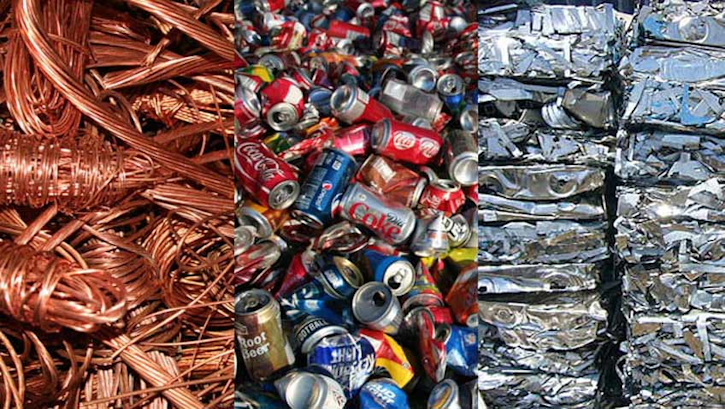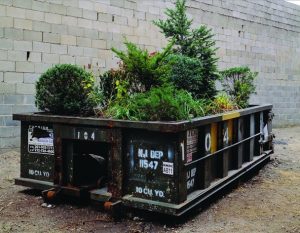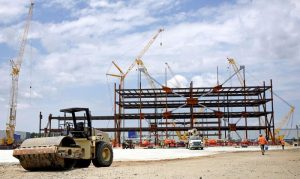How does metal recycling help reduce CO2 emissions

At the heart of the ecological transition, metal recycling is emerging as a key player in the fight against climate change. This in-depth review will focus on how metal recycling can serve as a major catalyst for reducing CO2 emissions. By exploring the links between metal production, product eco-design and socio-economic benefits, we will highlight the multiple facets of this practice.
The key role of metal recycling in the fight against CO2 emissions
Metal recycling has become an essential pillar in the global quest to reduce carbon dioxide (CO2) emissions and preserve the environment. Indeed, this process contributes significantly to ecological optimization by limiting the extraction of natural resources. It reduces energy consumption and minimizing greenhouse gas emissions associated with the primary production of metals.
One of the most important benefits of metal recycling is the reduced need to extract new raw materials from the earth’s crust. Mining is often associated with energy-intensive processes, resulting in significant CO2 emissions. By promoting the reuse of metals, recycling helps reduce pressure on fragile ecosystems while limiting emissions linked to mining extraction.
Additionally, metal recycling offers a more environmentally friendly alternative to primary production. Making metals from recycled raw materials generally requires less energy than making metals from raw ore. Therefore, the recycling process contributes to the reduction of CO2 emissions associated with the production of energy necessary for metal processing.
In addition, metal recycling plays an essential role in waste management excluding hazardous materials, avoiding the accumulation of end-of-life products in landfills. Metals, when discarded, can take decades or even centuries to decompose naturally. By recycling these materials, we not only avoid pollution and environmental degradation, but we also reduce the need to produce new metals, with all the associated CO2 emissions.
How does metal recycling act as a major lever to mitigate climate change
The circular economy, focused on the reduction, reuse and recycling of metal resources and limitation of waste creation, plays a crucial role in the transition to a more sustainable society. In this context, metal recycling stands out as a major lever for mitigating climate change.
At the heart of this dynamic, metal recycling offers an efficient solution to extend the lifespan of materials and reduce dependence on natural resources. By integrating recycled metals into the supply chain, we limit the need to operate new mines, resulting in a significant reduction in CO2 emissions associated with mining.
The circular economy also encourages the design of sustainable products and the implementation of more environmentally friendly manufacturing and waste management practices. By promoting the reuse of metals, recycling promotes a proactive approach aimed at minimizing environmental impact throughout the product life cycle. This is part of a broader vision where industries adopt responsible production models, thus contributing to the fight against climate change.
An often underestimated aspect of metal recycling in a circular economy is creating a more sustainable supply loop. Recycled metals can be transformed into new products, creating a virtuous circle of waste reduction and resource conservation. This approach not only contributes to the reduction of CO2 emissions linked to primary production, but it also promotes a more efficient use of materials, thus reducing pressure on natural ecosystems.
The government of Louisiana efforts to improve recycling
The government of Louisiana has been actively pursuing initiatives to bolster recycling efforts across the state of Louisiana, recognizing the critical need for environmental sustainability. In recent years, various strategies have been implemented to enhance recycling rates and reduce waste. One significant step has been the expansion of recycling infrastructure, with increased access to recycling facilities and drop-off centers in communities statewide.
According to junk experts at Near Me Dumpster Rental Lake Charles, a local waste management company, public awareness campaigns have been launched to educate residents and businesses about the importance of recycling and proper waste management practices. These efforts aim to instill a culture of environmental responsibility and encourage individuals to participate actively in recycling programs.
Furthermore, the LA government has collaborated with businesses and industries to promote recycling practices and implement eco-friendly measures in their operations. Incentives and grants have been provided to businesses willing to invest in sustainable practices, such as recycling facilities or the use of recycled materials in production processes.
Through these concerted efforts, Louisiana aims to not only improve recycling rates but also to mitigate environmental impact, conserve natural resources, and foster a cleaner, healthier future for generations to come.


 After first using Freud’s method of free associations, Jung considered that this approach did not take into account the whole dreamlike framework. It inevitably reduced subjects to complexes, complexes which were not necessarily part of the dream.
After first using Freud’s method of free associations, Jung considered that this approach did not take into account the whole dreamlike framework. It inevitably reduced subjects to complexes, complexes which were not necessarily part of the dream.

 When you want to buy a commercial property in Chicago, make sure you know what to do so as to have a smooth and hassle-free experience.
When you want to buy a commercial property in Chicago, make sure you know what to do so as to have a smooth and hassle-free experience.  A new mattress can make it a lot easier to sleep well at night and you are going to enjoy spending time on a brand new mattress. The downside of getting a new mattress is the price.
A new mattress can make it a lot easier to sleep well at night and you are going to enjoy spending time on a brand new mattress. The downside of getting a new mattress is the price. No matter where you live, finding a good builders company that is reliable can be pretty tough. With this daunting task at hand, you’ll have to weed out the good from the bad and doing so in the State of
No matter where you live, finding a good builders company that is reliable can be pretty tough. With this daunting task at hand, you’ll have to weed out the good from the bad and doing so in the State of 
